-
About
- About Listly
- Community & Support
- Howto
- Chrome Extension
- Bookmarklet
- WordPress Plugin
- Listly Premium
- Privacy
- Terms
- DMCA Copyright
- © 2010-2025 Boomy Labs
 Hugo Rep
Hugo Rep
Listly by Hugo Rep
Bonsai is the art of growing trees, or woody plants shaped as trees, in containers. Bonsai is sometimes confused with dwarfing, but dwarfing more accurately refers to researching and creating cultivars of plant material that are permanent, genetic miniatures of existing species.
Source: http://lapaginaverdedelbonsai.blogspot.com
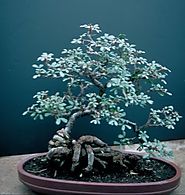
Bonsai is the art of growing trees, or woody plants shaped as trees, in containers.

While you can add a little of your own creativity, the fact remains that the guidelines are set in place for a reason.

An Introduction to Bonsai: History, Cultivation and Size Classifications.
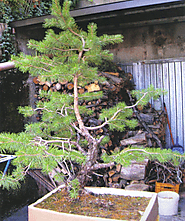
En el artículo titulado Bonsai un arte milenario, de los grandes paisajes a las plantas individuales. había prometido mostrarles como es el bonsai que vengo desarrollando desde hace bastante tiempo, concretamente hace casi 10 años (el bonsai es paciencia amigos, mucha paciencia!)
Y como lo prometido es deuda, acá está. Lo recogí cuando era apenas una rama rota caída de un pino en un fin de semana otoñal en los Apeninos centrales de Italia y lo transplanté en un contenedor para que comenzara a echar raíces.

Coussin's guide forms a lovely and thorough introduction to the ancient art of bonsai gardening.
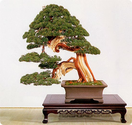
Cultivars offer foliage color ranging from dark green, to light green, to blue, each offering varying degrees of texture, presenting the ability to create fantastic foliage pads, while the bark presents a surface that can be polished or left rough, depending on the final image desired.

Originario dell'Asia, viene coltivato da secoli poiché le sue foglie rappresentano la dieta base dei bachi da seta.
È un albero di dimensioni contenute, molto robusto e longevo, caratterizzato da un'abbondante fruttificazione.
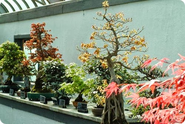
The trees sold as bonsai often come from temperate regions. This means that, just like the trees in those regions, they require full sunlight, well aerated soil and a winter dormancy period at near-freezing temperatures. Kept in the artificial environment of a home, these trees will become weakened and die.

This then the penultimate in the series. I will be including a Scots Pine shortly. Both JWP and Scots have been heavily requested so without a further explanation I will get on with this one ... a small Japanese White Pine (JWP).
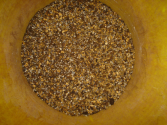
So, new pot is selected. Initially yet again the pot I chose for this tree whilst in Swindon was not at all right. I had a reserve in mind which gave me about 18-20mm spare all round the edge. It takes a while of course to select the soil that is going back into the mix, but this is a must.

Fino al secolo scorso, si conoscevano solamente i resti fossili di questo albero, considerato estinto da due milioni di anni.
Poi nel 1945, in una remota regione della Cina, ne furono trovati degli esemplari giganteschi e da allora è iniziata la coltivazione di questa magnifica essenza, soprannominata Abete d'acqua.

Un bonsai non è semplicemente una pianta. È una filosofia, un simbolo d’armonica condivisione con la natura.

In arte bonsai la specie più apprezzata è la Picea Jezoensis.
La Picea si adatta perfettamente a tutti gli stili a tronco eretto, essendo la sua silhouette in natura quasi sempre conica.
La Picea si adatta perfettamente a tutti gli stili a tronco eretto, essendo la sua silhouette in natura quasi sempre conica.
Le formazioni consigliabili sono quindi l’eretto formale ed informale; è particolarmente adatta anche per realizzare boschetti, visto che il suo tronco solitamente non presenta curve pronunciate.

Un bonsai non è semplicemente una pianta. È una filosofia, un simbolo d’armonica condivisione con la natura.

Le specie più utilizzate nella coltivazione a bonsai sono il Malus evereste, sieboldii e il Malus halliana.
Il secondo ha una caratteristica corteccia chiazzata, rami fini piuttosto rigidi di colore violaceo e fiorisce in primavera alle estremità dei rami.
Fra le varie caratteristiche, è sicuramente la sua fine ramificazione a renderlo ideale come bonsai.
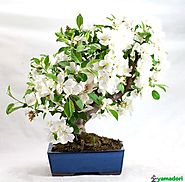
Un bonsai non è semplicemente una pianta. È una filosofia, un simbolo d’armonica condivisione con la natura.

L'Olea europaea è entrato nel mondo del bonsai con le prime coltivazioni dell'anno 1970.
Non è da molto tempo che l'Olivo è entrato nel mondo del bonsai: con le prime coltivazioni non si va più indietro del 1970.
Non è da molto tempo che l'Olivo è entrato nel mondo del bonsai: con le prime coltivazioni non si va più indietro del 1970.

Meishi is a Japanese business card. Like the art of Bonsai, it has been around a very long time. It was the first business card ever produced, originating in the 15th century. Social media is used by lots of businesses. Let others know you’re current by incorporating your Twitter handle or Facebook address on your businesses card.
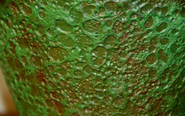
American potters Big Dave Rochester Bob Kelenjian Dick Ryerson Jim Barrett Kanahiro Hamajima Michael Hagedorn If you liked this article, subscribe to the feed by clicking the image below to keep informed about new contents of the blog:

If you liked this article, subscribe to the feed by the image below to keep about new of the blog:
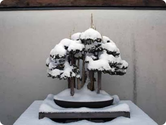
The miniature masterpieces that we call bonsai and penjing are the pinnacle of gardening skill, and the National Bonsai & Penjing Museum has one of the largest collections of these timeless trees in North America. The Japanese art of bonsai, and its precursor, the Chinese art of penjing, are rooted in the traditions of Asian culture.
an you tell the difference between a conifer and a broadleaved tree just from looking at an image? Sure you can, any child can do this. Can you tell the difference even when the conifer grows much like a broadleaved tree would normally and the broadleaved tee grows like a conifer?

These Species guides have been developed by a number of people putting in hours of dedicated work to bring together a valuable guide to Bonsai enthusiast - acknowledgement of the authors are on each page. Find the species below and click on the link to be taken to the guide for that particular tree Bald Cypress.
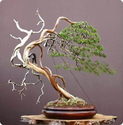
This gallery is dedicated to the Juniper and those who cultivate, style, and display them. A constant companion of bonsaists everywhere, the Juniper plays an important role in bonsai, while offering some of the finest bonsai in the world for inspirations and enjoyment by all.
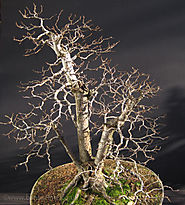
A selection of my bonsai images taken during the Winter, Dec 2010 to March 2011 Ulmus pumila/Siberian Elm after rewiring and pruning in early December after leaf-fall Height 23"/57cm. Pot by Erin Bonsai. I originally purchased this tree in the Summer of 2005 as raw field-grown material.
